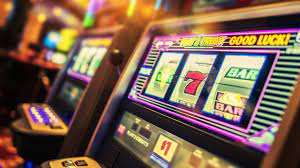Casinos have long fascinated people with their glitz, glamour, and the tantalizing promise of fortune. Their allure can be traced back through history, evolving from simple games of chance to sprawling entertainment complexes. This article explores the fascinating journey of dingdong, highlighting their origins, transformations, and impact on modern society.
The Ancient Beginnings
The concept of gambling is ancient, with early forms appearing in numerous cultures. In ancient China, for example, rudimentary dice games were played as early as 2300 BCE. Similarly, evidence of gambling activities has been found in ancient Egyptian tombs, where dice and other gaming artifacts have been discovered.
One of the earliest recorded instances of a casino-like establishment can be traced to ancient Rome. Roman society enjoyed various forms of gambling, from dice games to betting on chariot races. While these were not casinos in the modern sense, they laid the groundwork for future gambling establishments.
The Renaissance and the Birth of Casinos
The term “casino” itself has its roots in Italy, where it originally referred to a small villa or summerhouse. The word “casino” comes from the Italian word “casa,” meaning house. During the Renaissance, these houses were often used for social gatherings, and it wasn’t long before gambling became a popular pastime in these settings.
The first true casino, as we understand it today, was the Casino di Venezia, established in Venice in 1638. This institution was revolutionary, offering a controlled environment for gambling and marking the transition from informal gaming to a more structured form of entertainment.
The Casino Craze of the 19th Century
The 19th century saw the proliferation of casinos across Europe, especially in cities like Monte Carlo, which became synonymous with luxury gambling. The Monte Carlo Casino, founded in 1863, was instrumental in shaping the modern casino experience. Its opulent architecture and high-stakes games attracted the wealthy elite and helped popularize the casino as a symbol of glamour.
During this period, casinos also began to adopt a variety of games and betting options. Roulette, baccarat, and blackjack became staples of the casino floor, each adding its own unique flavor to the gambling experience.
The Rise of Las Vegas and the Modern Casino Era
The 20th century witnessed the rise of Las Vegas as the epicenter of the casino industry. Initially, Las Vegas was a modest town in Nevada, but the legalization of gambling in 1931 spurred rapid growth. The construction of large, lavish hotels and casinos, such as The Flamingo in 1946, transformed the city into a global gambling destination.
Las Vegas casinos introduced new concepts such as the all-inclusive resort experience, combining gaming with high-end dining, entertainment, and luxury accommodations. This model proved highly successful and was soon adopted in other parts of the world.
The Digital Revolution and Online Casinos
The advent of the internet in the late 20th century brought about another significant transformation in the casino industry. Online casinos emerged in the 1990s, allowing players to enjoy gambling from the comfort of their own homes. This digital shift has democratized access to casino games, making them available to a global audience.
Online casinos have also embraced technological advancements, incorporating features like live dealer games, virtual reality (VR) experiences, and mobile gaming apps. These innovations have further enriched the gambling experience and expanded the industry’s reach.
The Future of Casinos
As technology continues to advance, the future of casinos is likely to be shaped by ongoing innovations. The integration of artificial intelligence, blockchain technology, and immersive virtual reality could redefine the way we experience gambling. Additionally, there is a growing emphasis on responsible gaming and the development of tools to help players manage their gambling habits.
In conclusion, the evolution of casinos is a testament to their enduring appeal and adaptability. From ancient dice games to modern megastores and online platforms, casinos have continuously reinvented themselves to captivate audiences around the world. As they look to the future, the casino industry will undoubtedly continue to innovate and enchant, maintaining its place as a symbol of excitement and possibility.



